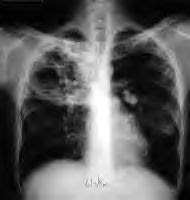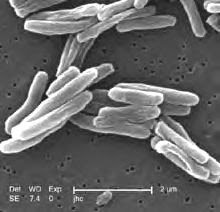Although it is generally acknowledged that a new safe and effective TB vaccine is needed, it may not be universally accepted, by all countries, that replacing the current bacille Calmette-Guérin (BCG) vaccine is in fact necessary or easily accomplished. However, with an integrated approach, for example using the current BCG vaccine in a prime––boost strategy, vaccination can make a major contribution to the elimination of TB
Comprehensive preclinical testing of vaccine products is needed to provide supportive evidence for the safety, immunogenicity, and potential effectiveness of the vaccine as well as for estimating vaccine dose and immunization schedules for clinical testing in human populations. Preclinical and nonclinical tests for regulatory purposes include the development of critical product tests such as potency/stability assays, toxicology assays relevant to vaccines, and safety assays. A recent publication on the development of live TB vaccines discusses useful methods for characterizing live TB vaccine products using good manufacturing practices (GMP). Also, Rowland et al. have described a number of tests that have been used to characterize the three major types of TB vaccine candidates: adjuvanted subunit vaccines, genetically modified vaccines, and vectored vaccines
The evaluation of new TB vaccine candidates in clinical trials will depend on several factors, including: (1) characteristics of the target study population, (2) the incidence of TB within the population, and (3) the incidence of atypical mycobacteria and of other infectious diseases such as HIV and malaria in the region where the clinical trial is being conducted. New preventive or therapeutic TB vaccines will need to be studied in several different clinical settings and in different populations, such as those who are "TB naïïve"(prior to infection), those with latent TB infection ("sensitized"), and those who have TB disease. In developing countries, key issues will include informed consent and access to immunization by the target population, as well as other risk/benefit and ethical issues.
Currently no immunologic correlate or surrogate marker for protection against TB infection or TB disease has been defined. Therefore safety and immunogenicity studies will need to provide data that allow researchers to make a reasonable decision based on the best science for moving forward into the next stage of clinical vaccine development within the shortest time frame possible (see http://www.fda.gov/oc/gcp/). Feasibility studies of new TB vaccines will need to address: (1) the choice of comparative controls for evaluating safety and efficacy, (2) determination of vaccine dose, (3) assessment of vaccine-induced human immune responses, (4) enrollment eligibility, particularly for persons previously infected with M. tuberculosis, and (5) retention of clinical trial materials for future studies
http://medicine.plosjournals.org/perlserv/?request=get_document&doi=10.1371/journal.pmed.0040252&
WHAT'S NEW IN TUBERCULOSIS




